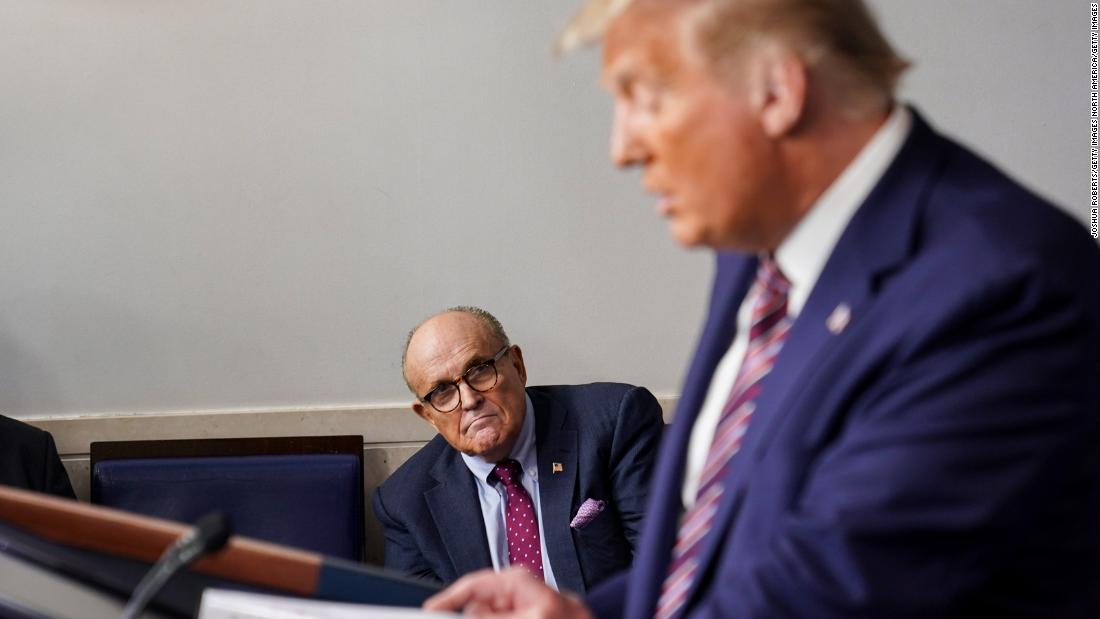Analysis: New revelations betray depth of Trump’s post-election schemes
Wednesday’s revelations alone underscored the vast scope of the committee’s investigation, the troubling breadth of the subversion effort and what increasingly looks like a Trump world cover-up.
New details defy Trump’s cover-up effort
Wednesday’s torrent of disclosures only hints at the size of the election-stealing effort operated out of the Trump White House and of the House committee’s investigation of events that culminated in one of the darkest days in US political history.
If there is any comfort for those who believe in American democracy, it is that all of the schemes failed — often due to the courage of local and state officials, many of them Republicans. But it became ever more clear Wednesday that an ex-President and a corps of fellow believers were willing to attempt to defy the will of voters with authoritarian measures.
That reality underscores the grave danger facing future elections in the US. Trump is seeking to insert like-minded activists and candidates in key positions overseeing elections in what looks like an attempt to destroy safeguards that prevented him from stealing the last election. It is also alarming that while US foes like Russia and China are escalating efforts to discredit democracy in the US and worldwide, their goals are shared by Americans working to destroy it from the inside.
Committee’s progress prompts extreme reactions
The closer the committee appears to discovering the truth, the more unhinged is the reaction from the Trump camp.
The request by the National Archives to the Justice Department to look into Trump’s handling of White House records escalates controversy over one of the more recent streams of investigation pursued by the committee.
A source told CNN that the Archives wants a review of whether Trump violated the Presidential Records Act, which requires all paper and other documents to be turned over the National Archives at the end of an administration, and other possible violations, including the handling of classified information. CNN has reported the former President routinely ripped up documents and took some with him to Mar-a-Lago after leaving office. The National Archives retrieved 15 boxes from the Florida resort just last month. And a person familiar with the matter previously told CNN that Archives general counsel Gary Stern had contacted Trump’s team last fall to ask about records apparently taken there.
All through his personal, business and personal life, Trump has shown an incredible capacity to escape consequences of his actions — often because his transgressions are so vast and unprecedented they defy any previous expectations of how presidents behave.
On the question of the torn and missing documents, Renato Mariotti, a former federal prosecutor, suggested that Trump may again escape legal jeopardy.
“It is clearly unlawful,” he said on CNN’s “Newsroom” on Wednesday. “The question of whether it is a crime is a little more complicated. If the intent was, for example, to obstruct justice, to hide wrongdoing, and or other unlawful activity, that would be a crime. Otherwise, it is very wrong, unlawful, but there is no enforcement mechanism and no obvious criminal penalty there.”
The presidency as personal entitlement
The fact that the President appears to have openly flouted laws on record keeping was the latest example of his contempt for the traditions and laws that have long defined the office he held for four wild and damaging years.
Every presidents’ records are kept, providing historians with intimately detailed primary sources that can be used to reconstruct presidencies decades later.
But Trump always appeared to view the presidency as a personal entitlement with which he could do what he liked rather than a sacred trust meant to advance and defend the national interest. That he appears to be attempting to regain the presidency in 2024 — even with all this fresh evidence of his misconduct emerging — only underscores that the coming years could be even more dangerous to US democratic governance and respect for presidential guardrails than the previous five.
Evan Perez, Ryan Nobles, Zachary Cohen, Annie Grayer and Marshall Cohen contributed to this story.
![]()


